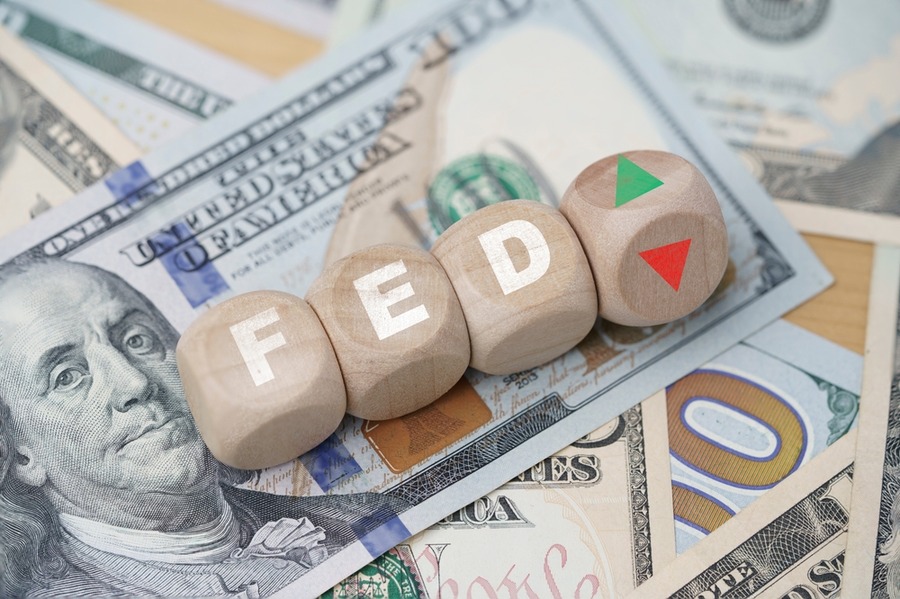As anticipated, the Federal Reserve raised the US interest rate by a quarter of a percentage point on Wednesday, marking the 10th rate hike in just over a year. The central bank signaled that it may soon halt its monetary tightening campaign. As usual, central banks in the Gulf countries followed suit and announced interest rate increases.
In a unanimous decision widely expected by the markets, the Federal Open Market Committee raised the benchmark borrowing rate by 0.25 percentage points.
The rate determines what banks charge each other for overnight lending and fuels many consumer debt products such as mortgages, auto loans, and credit cards.
The fed funds rate rose to a target range of 5 percent to 5.25 percent, the highest level since August 2007.
However, the markets are more focused on whether the Fed will continue to raise rates, given concerns about economic growth and the banking crisis causing turmoil on Wall Street.
Stocks rose slightly, and Treasury yields fell after the Fed’s decision.
Read more: Fed raises interest rates by 25 basis points, Gulf central banks follow suit
Powell
During the press conference, Chairman Jerome Powell indicated that the change in the language of the statement about stabilizing the policy in the future was “meaningful,” but no decision was made about pausing the rate hikes.
According to CNBC, the post-meeting statement provided some clarity on the future pace of rate hikes only- not through what it said, but through what it did not say. The prior version of the statement said that “the Committee expects that some additional firm policies may be appropriate” for the Federal Reserve to meet its 2% inflation target.
The statement was also updated to clarify the circumstances under which “it may be appropriate to install an additional policy.” The Federal Open Market Committee (FOMC) had previously issued forward guidance on how to determine the “extent of future increases in the target range.”
The statement stressed that the Federal Reserve “will take into account the cumulative tightening of monetary policy, as well as the slowdown with which monetary policy affects economic activity, inflation, and economic and financial developments.”
GCC Central Banks
Most Gulf central banks announced similar rate hikes shortly after the Federal Reserve’s decision, except for Qatar.
The Saudi Arabian Monetary Agency (SAMA) decided to hike the repo rate by 25 basis points to 5.75 percent. The reverse repos (Repurchase Agreement) rate was also raised by 25 basis points to 5.25 percent.
The UAE Central Bank, for its part, opted to boost the basic interest rate by 25 basis points to 5.15 percent.
In addition, the Central Bank of Bahrain said in a statement that the major interest rates had been hiked by 25 basis points. It increased the interest rate on one-week deposits to 6 percent from 5.75 percent, the overnight deposit rate to 5.75 percent from 5.5 percent, the four-week deposit interest rate to 6.75 percent from 6.5 percent, and the lending interest rate to 7 percent from 6.75 percent.
Meanwhile, the Qatar Central Bank (QCB) has decided to keep deposit, lending, and repurchase interest rates unchanged.
For more on markets, click here.








